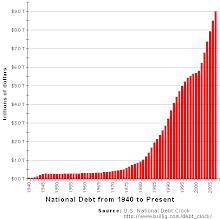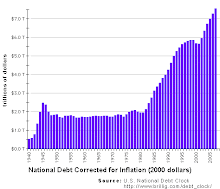WASHINGTON — Among the sweeping changes in government regulation that President Barack Obama will propose Wednesday is the creation of an independent and powerful Consumer Financial Product Safety Commission to regulate financial products such as mortgages and credit cards.
With an eye toward protecting consumers and ordinary investors, the Federal Reserve and other bank regulators would lose their oversight over mortgages, credit cards and other financial products that are sold to consumers. It's a radical shift in approach and a tacit acknowledgment of federal failure.
"Lets face it, the (Federal Reserve Board) has had the power to engage in aggressive consumer regulation at least since 1994," Harvard law professor Elizabeth Warren, who chairs the Congressional Oversight Panel, which oversees how Wall Street bailout money is being spent, told McClatchy in an interview. "They clearly had the power to stop the mortgage crisis before it started. And what did they do with that power? Nothing."
Warren's view was echoed by Rep. Barney Frank, D-Mass., the chairman of the influential House Financial Services Committee, which will write the legislation to implement and perhaps build on Obama's proposals.
"We definitely should take consumer protection away from the Fed," Frank said.
While Fed Chairman Ben Bernanke has done a good job on consumer finance issues, Frank said, his predecessor Alan Greenspan's failure to enforce laws on deceptive mortgage practices led to weak lending standards and the proliferation of mortgages issued with little or no review of borrowers' ability to pay.
"We find this idea (of a commission) very intriguing, and we think it shows a lot of promise and can certainly help put the country back on the right track and make sure that the consumer is present in the equation," said Evan Fuguet, senior policy counsel for the Center for Responsible Lending, a consumer advocacy group in Durham, N.C.
For people who've been saddled with arbitrary rate increases on credit cards, predatory lending in subprime mortgages or onerous terms on tax-deferred annuities, the proposed new agency could be a breakthrough.
However, the commission could end up limiting consumer credit options and innovation just as the economy is beginning to rebound, said Bill Himpler, the executive vice president for government affairs of the American Financial Services Association, the trade association for the consumer credit industry.
"The last thing we want to do is scare the consumer. And we're afraid that creating an agency that would put government in control of personal finances would undermine that confidence that seems to be being restored," he said.
American Financial Services Association officials said they didn't believe that the proposed new agency was a reflection of past regulatory failures.
"We honestly believe that the regulatory bodies in place now have adequately addressed the situation," said Chris Stinebert, the association's president and chief executive. "The regulatory structure as it exists now between the federal (government) and the state(s) is working."
The regulation of consumer finance now is spread across a number of agencies that regulate not the products themselves, but the issuers. The Office of Thrift Supervision regulates savings and loan institutions that offer credit cards, while the Fed or the Office of the Comptroller of the Currency regulates federally regulated banks that offer the same product.
In fact, Frank said, the comptroller's office brought successful legal challenges earlier this decade against efforts by states to protect consumers, working against the interests of consumers in an effort to ensure that federal powers take precedence over state laws.
Under Obama's plan, the new agency would regulate the financial products themselves.
The commission "fills in the last big regulatory gap at the consumer level. Food is safe. Physical products are safe. And with this agency, credit products will be safe," said Warren, a nationally recognized consumer advocate who's long called for improving the way consumer financial products are regulated.
Warren and Frank said that when regulatory agencies were charged with policing the safety and soundness of an institution along with protecting consumers, the latter took a back seat.
The new agency's mission would be to put the consumer front and center, as the Food and Drug Administration is tasked with doing with grocery products and pharmaceuticals.
"I think it does certainly raise the question that the regulatory system as structured was not responsive enough, fast enough. And I think this certainly does take a look at the little guy," said Fuguet, of the Center for Responsible Lending. "I think it's an acknowledgment that they need to look at actors in credit transactions in a new light."
See also "Obama Calls for Increased Regulation of Financial Markets."






The banksters will resist.
ReplyDeleteThis is very appealing, however , it is very important that will mouse click on the connection: Best Forex Signals
ReplyDelete